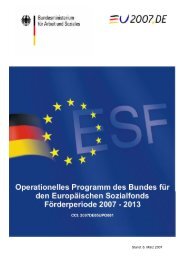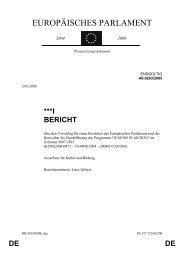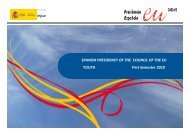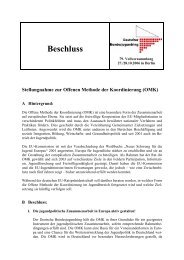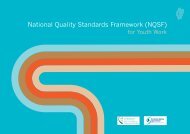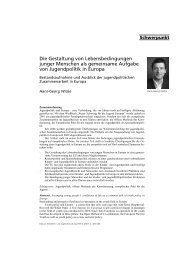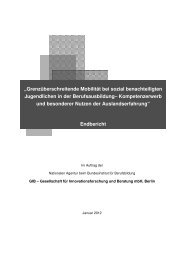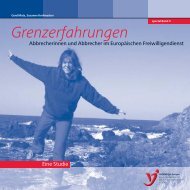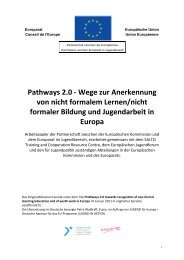Report - Salto
Report - Salto
Report - Salto
You also want an ePaper? Increase the reach of your titles
YUMPU automatically turns print PDFs into web optimized ePapers that Google loves.
Bridges for Recognition | Hot Issues discussion groups<br />
67<br />
groups<br />
Manuel Souto of ECOTEC Research and Consulting, introduced<br />
some of the controversial or ‘Hot Issues’ that they encountered<br />
when establishing an “Inventory of the Recognition and<br />
Validation of Non-Formal Learning”. During this task, which<br />
they undertook on behalf of the European Commission, they<br />
aimed to get an overview of different systems for the recognition<br />
of Non-Formal Learning, not only within youth work but also<br />
in the work place and in civil society. The aim of the Inventory<br />
was to support and stimulate the development of high quality<br />
validation methodologies and standards.<br />
www.ecotec.com/europeaninventory2004/<br />
Manuel Souto highlighted that Validation and Recognition of Non-Formal Learning is by no<br />
means a simple affair. Many controversies exist around it. The so-called controversial ‘Hot<br />
Issues’ could be organised around three strands.<br />
1. Preconditions for validation of non-formal and informal learning in the Youth sector<br />
2. Implementation of validation and recognition procedures or systems<br />
3. Monitoring and transferability of recognition tools<br />
Under the first strand, discussion will focus on some of the necessary elements to establish<br />
systems for validation of non-formal and informal learning, with a focus on the Youth sector.<br />
These elements are the predisposition of Youth Organisations to take part in the validation of<br />
non-formal and informal learning, allocation of responsibilities, and funding sources.<br />
The second strand will focus on how validation initiatives can actually be implemented. In practice<br />
implementation relates strongly to standard-setting, quality assurance, the degree of formalisation<br />
of validation methodologies and ensuring equality between different target groups.<br />
The third strand will explore the feasibility of alternative transferability across different sectors,<br />
countries and Youth organisations –a topic of much relevance for practitioners.<br />
The three strands are not self-contained, but rather, they are strongly interlinked. For example,<br />
the level of funding available in Youth organisations for validation initiatives determines to an<br />
important extent the conditions for the implementation of these initiatives.



